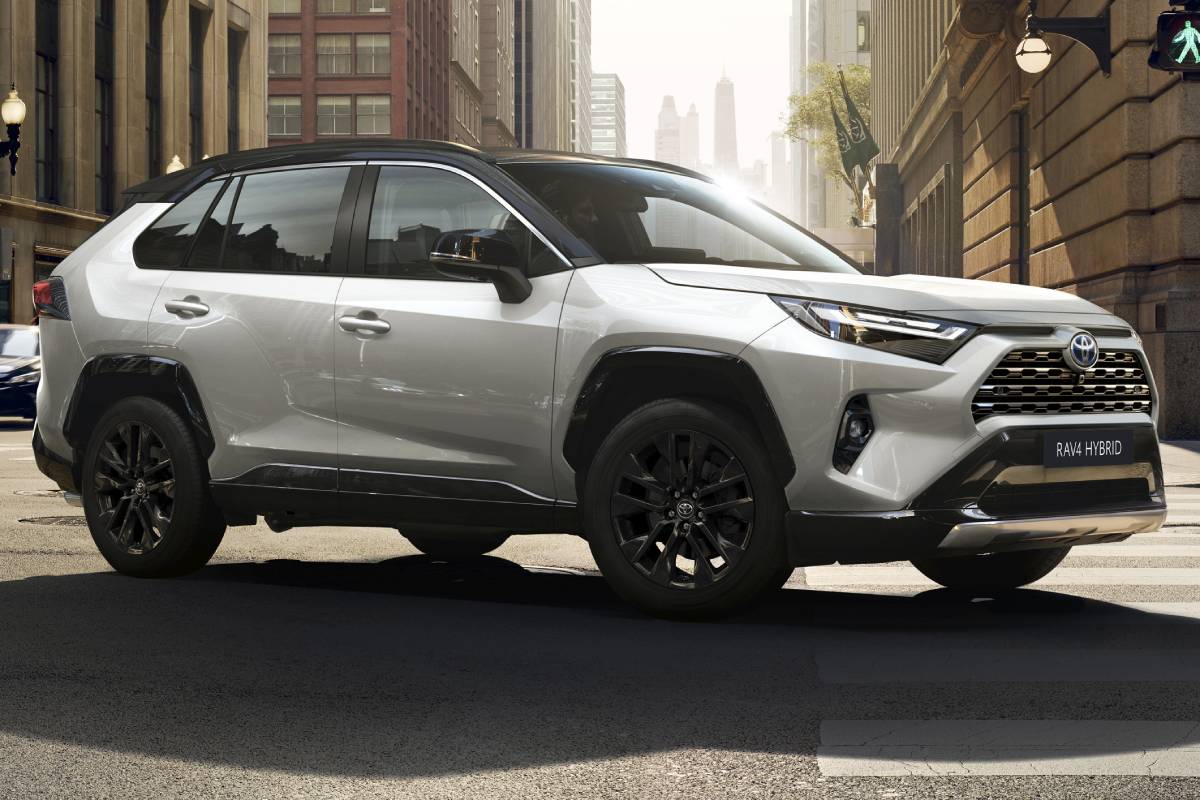Reimagine Your Commute: Exploring the Toyota RAV4 Prime
Is it possible to have it all? A spacious SUV that's also kind to the planet? The Toyota RAV4 Prime plug-in hybrid seems to offer that very possibility, blending the practicality of a popular SUV with the fuel efficiency of a hybrid powertrain. But is it the right choice for you? Let's explore this intriguing vehicle and uncover what makes it tick.
The RAV4 Prime isn't just another hybrid; it's a plug-in hybrid electric vehicle (PHEV), meaning you can charge its battery from an external power source. This allows for all-electric driving for a certain range before the gasoline engine kicks in. This dual nature makes it appealing for those seeking to reduce their carbon footprint and fuel costs.
Toyota's journey into hybrid technology has been a long one, with the Prius paving the way. The RAV4 Prime takes this a step further, offering a more robust electric range than traditional hybrids. It positions itself as a compelling option in the growing PHEV market, attracting drivers who want the best of both worlds.
But like any vehicle, the RAV4 Prime has its nuances. Understanding its charging requirements, potential maintenance needs, and overall cost of ownership is crucial before making a decision. We'll delve into these aspects to give you a comprehensive understanding.
In this increasingly eco-conscious world, vehicles like the RAV4 Prime represent a significant shift in the automotive landscape. They bridge the gap between traditional gasoline cars and fully electric vehicles, offering a practical stepping stone towards a greener future. Let's explore what makes this particular PHEV so compelling.
Toyota introduced the RAV4 Prime in 2020, building on the success of the standard RAV4. It aimed to address the growing demand for PHEVs, offering a more powerful and fuel-efficient option in the SUV segment. One key challenge for PHEVs is achieving a balance between electric range and overall performance. Toyota sought to address this with the RAV4 Prime.
The RAV4 Prime's plug-in hybrid system combines a gasoline engine with an electric motor and a battery pack. When fully charged, the vehicle can operate solely on electric power for a significant distance, depending on driving conditions. Once the battery's charge depletes to a certain level, the gasoline engine seamlessly takes over.
One of the primary benefits of the RAV4 Prime is its impressive fuel efficiency. The ability to drive on electric power for extended periods significantly reduces reliance on gasoline. Another advantage is its lower emissions compared to traditional gasoline-powered SUVs, contributing to a smaller environmental impact. Finally, the RAV4 Prime offers brisk acceleration and a refined driving experience, often exceeding the performance of its non-hybrid counterpart.
Before purchasing a RAV4 Prime, it's wise to research available charging stations in your area and understand the different charging levels. Also, compare insurance rates for the RAV4 Prime with other vehicles you are considering.
Advantages and Disadvantages of the Toyota RAV4 Prime
| Advantages | Disadvantages |
|---|---|
| Excellent Fuel Efficiency | Higher Initial Cost Compared to Standard RAV4 |
| All-Electric Driving Range | Limited Availability in Some Areas |
| Powerful Acceleration | Charging Time Can Vary Depending on the Charger |
Best Practices for RAV4 Prime Ownership: 1. Maximize electric driving by charging regularly. 2. Plan routes to utilize public charging stations efficiently. 3. Learn about the various driving modes to optimize performance and efficiency. 4. Stay informed about software updates for the vehicle's systems. 5. Familiarize yourself with the maintenance schedule specific to the hybrid components.
Real-world examples of RAV4 Prime usage include daily commuting with minimal gasoline consumption, weekend road trips with convenient charging stops, and utilizing the all-electric mode for errands around town. Challenges such as limited charging infrastructure in certain areas can be addressed by installing a home charger.
FAQ: What is the electric range of the RAV4 Prime? How long does it take to charge? What is the difference between a plug-in hybrid and a regular hybrid? Does the RAV4 Prime qualify for tax incentives? What kind of maintenance does the hybrid system require? What is the warranty coverage for the battery? Where can I find certified RAV4 Prime service centers? Is all-wheel drive standard on the RAV4 Prime?
Tips and tricks: Pre-condition the cabin temperature while the car is plugged in to conserve battery power. Use regenerative braking effectively to maximize efficiency. Monitor your energy consumption through the vehicle's infotainment system.
The Toyota RAV4 Prime plug-in hybrid presents a compelling option for those seeking a blend of SUV versatility and eco-conscious driving. Its ability to run on electric power for a significant range, coupled with its impressive fuel efficiency and performance, makes it a standout in the crowded SUV segment. While the initial cost might be higher than a conventional RAV4, the potential long-term savings on fuel and the reduced environmental impact can make it a worthwhile investment. By understanding its features, benefits, and potential challenges, you can determine if the RAV4 Prime is the right choice for your lifestyle and contribute to a greener future. Explore the RAV4 Prime further by visiting Toyota's official website and reading independent reviews. Take a test drive to experience its unique driving dynamics firsthand.
Unlocking your potential exploring general schedule gs jobs in south carolina
Conquering the family saga online a deep dive
Unlocking the genius of the far side cartoons











